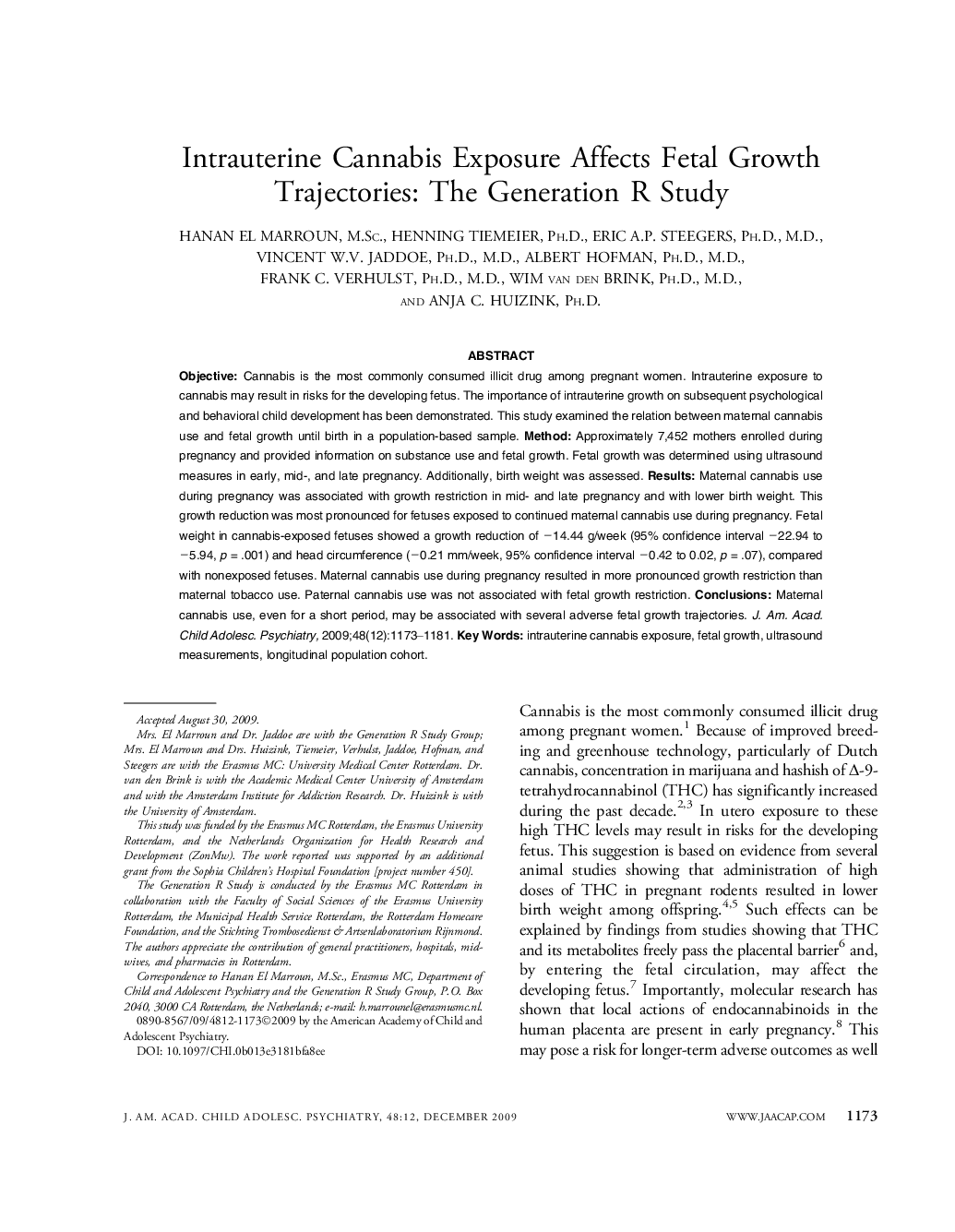| Article ID | Journal | Published Year | Pages | File Type |
|---|---|---|---|---|
| 324810 | Journal of the American Academy of Child & Adolescent Psychiatry | 2009 | 9 Pages |
ObjectiveCannabis is the most commonly consumed illicit drug among pregnant women. Intrauterine exposure to cannabis may result in risks for the developing fetus. The importance of intrauterine growth on subsequent psychological and behavioral child development has been demonstrated. This study examined the relation between maternal cannabis use and fetal growth until birth in a population-based sample.MethodApproximately 7,452 mothers enrolled during pregnancy and provided information on substance use and fetal growth. Fetal growth was determined using ultrasound measures in early, mid-, and late pregnancy. Additionally, birth weight was assessed.ResultsMaternal cannabis use during pregnancy was associated with growth restriction in mid-and late pregnancy and with lower birth weight. This growth reduction was most pronounced for fetuses exposed to continued maternal cannabis use during pregnancy. Fetal weight in cannabis-exposed fetuses showed a growth reduction of −14.44 g/week (95% confidence interval −22.94 to −5.94, p = .001) and head circumference (−0.21 mm/week, 95% confidence interval −0.42 to 0.02, p = .07), compared with nonexposed fetuses. Maternal cannabis use during pregnancy resulted in more pronounced growth restriction than maternal tobacco use. Paternal cannabis use was not associated with fetal growth restriction.ConclusionsMaternal cannabis use, even for a short period, may be associated with several adverse fetal growth trajectories.
